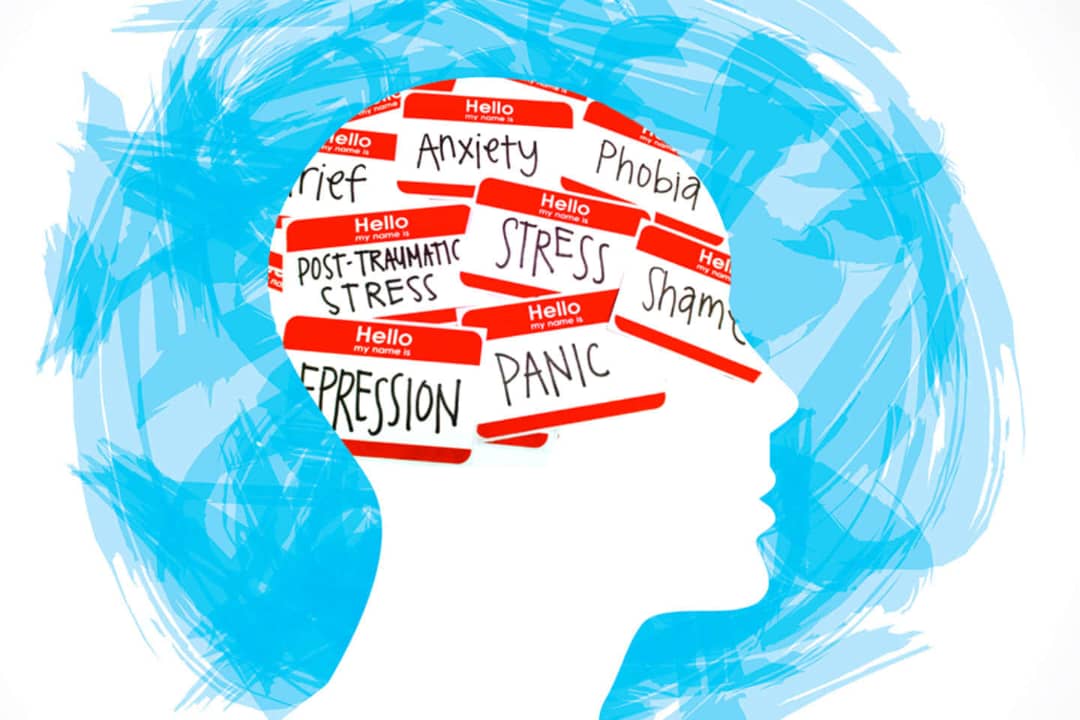MENTAL HEALTH: ARE WE DOING ENOUGH?
By Nasirat Bolanle
With over 1.9 billion Muslims worldwide, studies show that a significant portion of Muslim youth, including students, are increasingly reporting struggles with mental health. Despite this, cultural stigma and limited access to resources often leave their needs unmet.
For many Muslim students, the burden of academic stress, cultural expectations, and the silent stigma around mental health creates a struggle that is often invisible—yet deeply felt.
To cite a crucial example, at a bustling university campus, Aisha, a 21-year-old Muslim student, found herself struggling with feelings of isolation and anxiety. Despite her excellent grades, she often felt overwhelmed, juggling her coursework with cultural expectations and the subtle pressures of being visibly Muslim in a diverse but occasionally insensitive environment. During a group project, a peer casually remarked, “You don’t seem like the type to get stressed—you probably just pray it all away.” While Aisha smiled politely, the comment stung.
It reflected a common misconception that her faith somehow shielded her from mental health struggles. Over time, the weight of academic performance, microaggressions, and her reluctance to seek professional help due to stigma within her community began to take a toll.
She started experiencing panic attacks, but when she shared her feelings with her family, she was told to “make more du’a” and focus on being grateful for her blessings.

Aisha’s story, unfortunately, is not unique. A recent study found that Muslim students are more likely to report feelings of anxiety and depression, yet they often face cultural or societal barriers to seeking help.
Mental health is often misunderstood as solely being about feeling depressed, anxious, or sad all the time, but it encompasses much more, including conditions like OCD (Obsessive-Compulsive Disorder) and ADHD (Attention Deficit Hyperactivity Disorder). These conditions can impact individuals in ways that are not always visible to others.
For example, Ahmed, a 19-year-old student, constantly checks and re-checks his study materials before every exam, a ritual he feels compelled to perform despite knowing it wastes time. This is a manifestation of OCD, where intrusive thoughts force him to engage in repetitive behaviours to alleviate anxiety.
On the other hand, Zainab, a 22-year-old who struggles with ADHD, finds it difficult to focus during class. Her mind constantly races, jumping from one thought to another, making it nearly impossible to complete assignments on time. Despite not feeling “sad,” both Ahmed and Zainab face significant mental health challenges that affect their daily functioning.
Mental health isn’t just about feeling down—it’s about how we manage emotions, thoughts, and behaviours to support our overall well-being. Mental health challenges can manifest in subtle ways, such as burnout, irritability, difficulty concentrating, or even physical symptoms like headaches and fatigue, which are often overlooked.
It’s also about personal growth and developing coping mechanisms, not just addressing illness.
The main question is, where are we falling short in mental health support?
One of the major areas where we fall short is in the education and awareness surrounding mental health. Many people, especially in culturally conservative communities, still hold misconceptions about mental health conditions.
Mental health is often viewed through a narrow lens, with emphasis placed only on conditions like depression and anxiety. At the same time, disorders like OCD, ADHD, and PTSD are frequently misunderstood or overlooked. Schools and universities, for example, may provide limited mental health education, leaving students without the knowledge to recognize early warning signs or seek help when needed.
Additionally, In many Muslim communities, mental health struggles are often met with stigma and misunderstanding. There is a deeply rooted belief that mental health issues reflect a lack of faith or spiritual weakness. For example, a Muslim student dealing with anxiety or depression might be told to simply “pray more” or “put their trust in Allah,” without acknowledging the need for professional mental health support.
This belief stems from the idea that faith alone should be sufficient to overcome emotional and psychological challenges. As a result, many individuals feel ashamed or guilty for struggling with their mental health, fearing that seeking help may reflect poorly on their faith or make them appear weak.
This stigma discourages people from reaching out for help, leaving them to silently cope with their issues. In a community where mental strength and faith are highly valued, the idea of acknowledging vulnerability can feel like a conflict between seeking help and maintaining one’s spiritual integrity. This cultural barrier continues to prevent many from accessing the support they need to heal and thrive. Another area where we fall short is in providing culturally competent care.
Mental health professionals may not always be trained to understand the unique challenges faced by students from diverse cultural, religious, or ethnic backgrounds. For example, a Muslim student may feel uncomfortable discussing their mental health with a therapist who doesn’t understand the importance of prayer, fasting, or religious values in their life.
Without therapists who are sensitive to these aspects, students may feel misunderstood or alienated, making it less likely that they will continue seeking help. Most educational institutions still lack sufficient mental health resources to adequately support students. In many cases, there are limited counsellors or mental health professionals available, and wait times for appointments can be long. Additionally, students may not know where to turn for help, or they may feel that seeking support could impact their academic or social reputation. This lack of accessible support leaves many students struggling without the necessary tools to cope with their challenges.
There’s also a tendency to focus on treating mental health issues once they become severe, rather than focusing on prevention. Practices like mindfulness, stress management, and emotional regulation are often not emphasized until a crisis point is reached!
As the Quran reminds us, “And indeed, with hardship comes ease” (Surah Al-Inshirah, 94:5). Yet, many Muslims struggle to prioritize their mental health due to cultural stigma.
However, this stigma is not supported by Islamic values that teach that seeking help for mental health challenges is not a sign of weakness but part of taking care of one’s body and soul. The Prophet Muhammad (PBUH) encouraged seeking both spiritual and medical treatment when necessary. Several key counterpoints can help us reframe our understanding of mental health.
-
- The Prophet Muhammad (PBUH) and Compassionate Healing:
The Prophet Muhammad (PBUH) showed deep empathy toward those suffering from mental and emotional distress. In several Hadiths (sayings of the Prophet), he advised individuals to seek help for both physical and mental health issues. One famous Hadith states:
“There is no disease that Allah has created, except that He also has created its treatment.”
-
- Increased Awareness and Changing Attitudes:
In recent years, there has been a growing awareness within the Muslim community regarding mental health, especially among younger generations. Many Muslim leaders, scholars, and activists are beginning to speak openly about the importance of mental well-being and the need to address mental health issues more compassionately and proactively.
This shift is helping to reduce the stigma, encouraging individuals to seek professional help when needed, and recognizing that mental health challenges are just as real and important as physical illnesses. Islamic scholars, such as Al-Ghazali, also addressed mental and emotional well-being.
Al-Ghazali, in his work Ihya’ Ulum al-Din (The Revival of Religious Sciences), spoke extensively about the importance of maintaining a healthy soul and mind. He recognized the harmful effects of negative emotions such as anger, jealousy, and greed, and taught methods to cleanse the soul, including prayer, reflection, and self-discipline. His work on spiritual healing aligns with the idea that mental health is a balance of both the mind and soul.
-
- Therapy and Counseling Are Not in Conflict with Faith: Some Islamic scholars and therapists integrate Islamic principles with mental health counselling, offering a way for individuals to receive both faith-based guidance and therapeutic support. These professionals understand the nuances of balancing religious beliefs with mental health treatment, offering a culturally sensitive approach that respects faith while addressing psychological needs. This provides an alternative for those who might feel uncomfortable seeking therapy from providers unfamiliar with Islamic values.
As we continue to navigate the complexities of mental health, we must challenge the stigma that often surrounds it, particularly in Muslim communities. Mental health is not a sign of weakness, but a natural part of being human, and seeking help is a courageous step towards healing. Whether through therapy, counselling, or community support, it’s time to break down the barriers and encourage open conversations about mental well-being.
We must create spaces where mental health is treated with the same respect and importance as physical health, fostering environments where individuals feel empowered to seek help without fear of judgment. Schools, mosques, community centres, and families need to work together in promoting mental health education, reducing stigma, and supporting those who need help.
Let’s remember that taking care of our minds is not only a personal responsibility but a collective one. By supporting each other, educating ourselves, and integrating spiritual and professional care, we can create a healthier, more compassionate future for all. Reach out, speak up, and seek the help you deserve. Your mental health matters.
What if caring for our mental health was as natural and accepted as caring for our physical health?
Website Designed by AAFAISOL, ©2025 All Rights Reserved.


Leave Your Comments